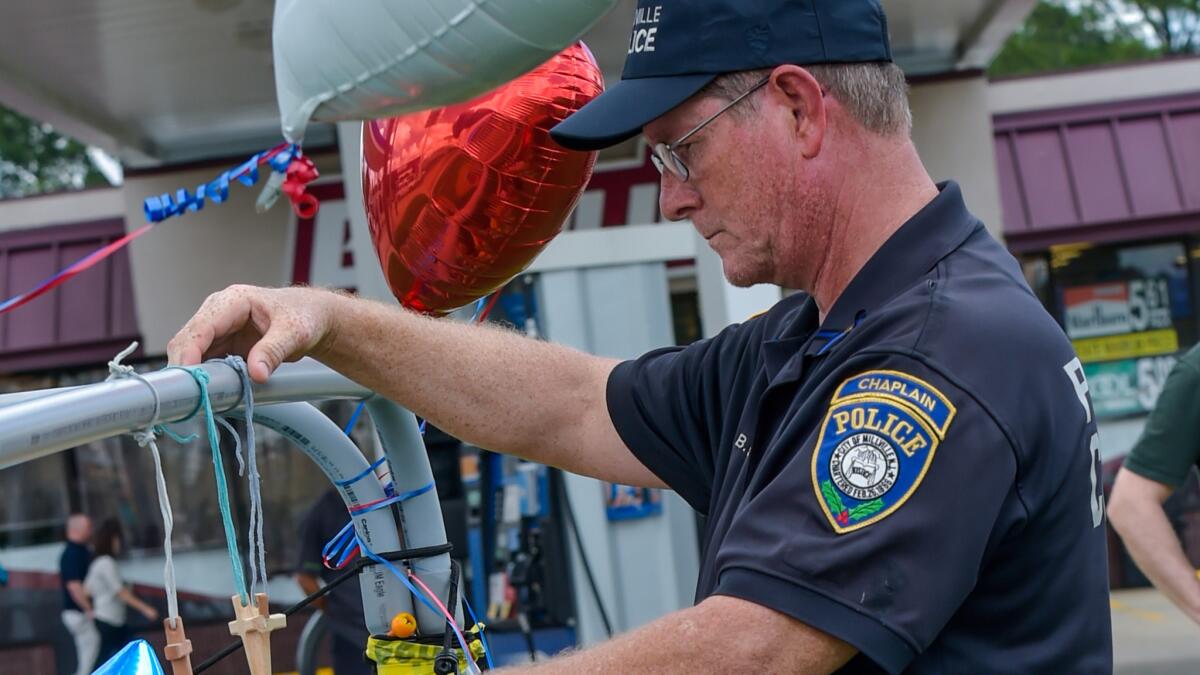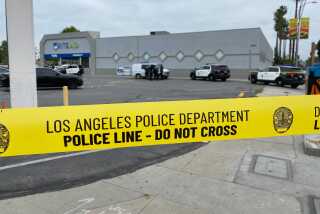Cops killing civilians, civilians killing cops. How do we fix this?

- Share via
Twice now in less than two weeks, police officers have been targeted in lethal mass shootings by men apparently looking to avenge the deaths of African Americans at the hands of law enforcement. This is unconscionable, and indefensible, conduct by the gunmen. As we noted after the horrific July 7 attack in Dallas that killed five officers and wounded nine more, there is no moral calculation that justifies the ambush of law enforcement personnel as they go about their work. The killings Sunday in Baton Rouge, La., of three officers, and the wounding of three others, was just as sickening, just as reprehensible, and just as indefensible.
So what to do about it? Grieve, of course. And denounce. But ratcheting back the violence will require a better understanding of the nature and extent of the frictions among police officers and the communities they risk their lives to serve. It will require a deeper understanding of the real grievances of people who feel the justice and political systems do not hear them. But it also will require patience. There are no instant solutions to the deep-rooted problems with race relations, over-policing, implicit bias and mistrust, civilians’ easy access to military-style firearms, and other factors that have led the nation to this dysfunctional juncture. Meanwhile, the attacks in Baton Rouge and Dallas only heighten the sense of danger that police officers, trained to look out for their own safety as well as others’, may feel as they interact with the public.
There also needs to be a better and more transparent system of accountability. The acquittal Monday of the third of six Baltimore officers (the trial of a fourth ended in a hung jury) charged in the death of Freddie Gray raises fresh questions about how police should treat those in their custody. Gray died last year of injuries suffered when he bounced around unsecured by safety restraints in the back of a police transport van. Investigations into the deaths of unarmed people at the hands of police too often end in findings that the officers broke no laws or procedures, when common sense tells us that the behavior was unacceptable. If the problem is police policies or legal definitions, then they should be reassessed and recast.
Notably, no statistics beyond those compiled by media exist on how often police kill civilians, or on the demographics of those encounters, or how many of them are justified by the circumstances. That is where we start: Figuring out the scope of the problem, then devising policies to target it. In the meantime, police departments and political leaders must get better at forging relationships with the people they are supposed to serve. And we can’t let the demonic actions of outliers like the Dallas and Baton Rouge shooters derail a national discussion on how to better and more safely police our neighborhoods, respecting the rights and safety of both civilians and those working to protect them.
Follow the Opinion section on Twitter @latimesopinion or Facebook
More to Read
A cure for the common opinion
Get thought-provoking perspectives with our weekly newsletter.
You may occasionally receive promotional content from the Los Angeles Times.









